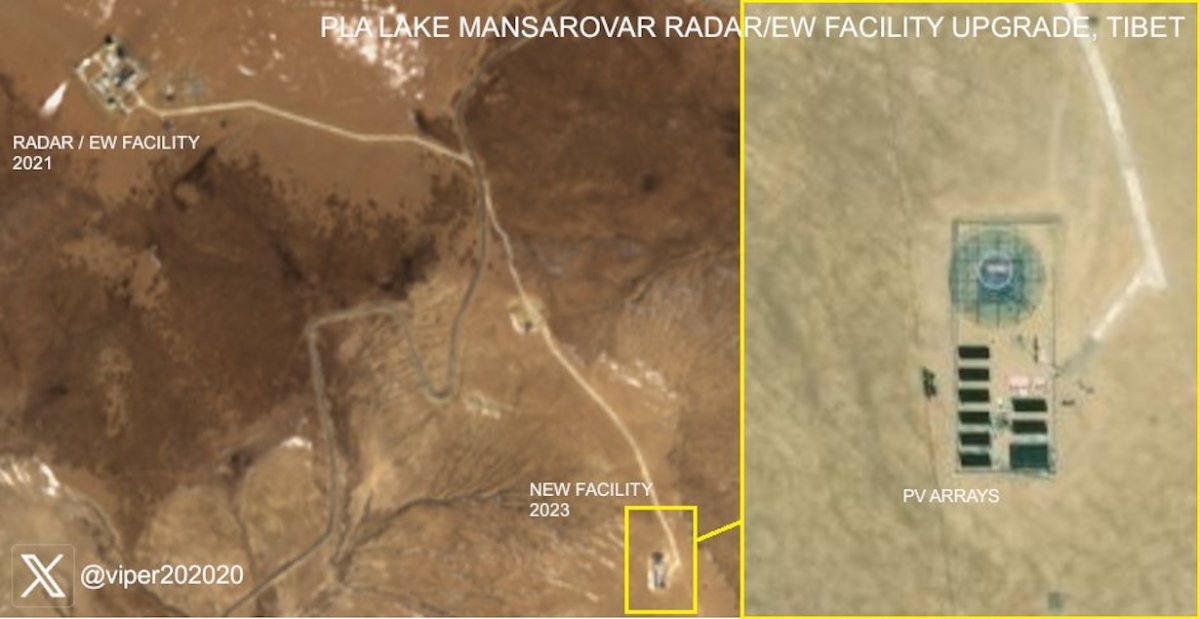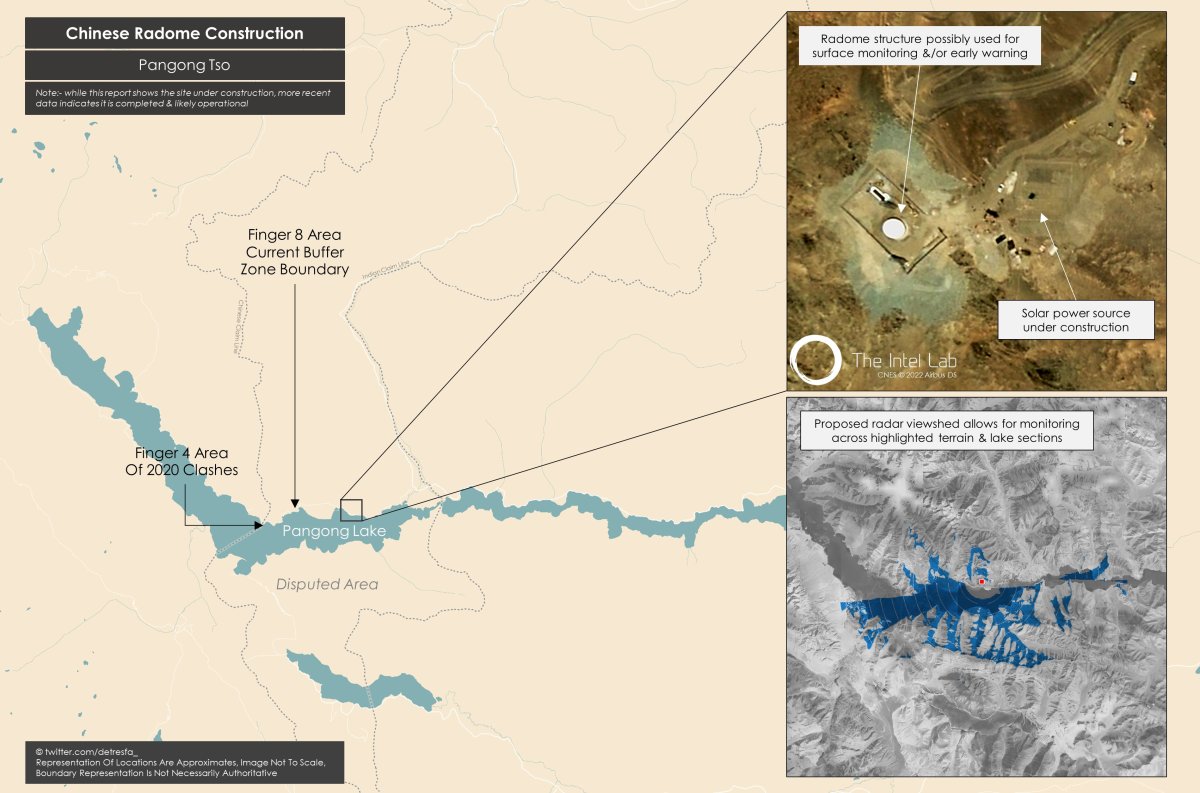Aadil Brar
China has been building new radar and electronic warfare facilities in the mountains along its long, disputed border with India, recent satellite imagery revealed.
An expansive radome—a structure housing radar and other signals intelligence equipment—is under construction at Lake Mansarovar in its southwestern Tibet region, according to stills captured this month.
The facility appeared to be equipped with dedicated solar arrays to ensure a sustained power supply, photographs from Sinergise's Sentinel Hub website showed. The service hosts images from the Sentinel-2 satellite of the European Union's Copernicus Earth observation program.

New electronic warfare facilities can be seen coming up near Lake Mansarovar, located in China's southwestern Tibet region, as seen in satellite imagery captured on January 8, 2024. China and India are quietly constructing permanent infrastructure in sensitive border areas.
China and India have been locked in an escalated military standoff for nearly four years since a deadly border clash in the summer of 2020, itself a result of their decades-long unsettled Himalayan boundary.
The buildup of military infrastructure is thought to be part of the People's Liberation Army's broader strategy of enhancing its intelligence gathering and electronic warfare capabilities, with both forces deployed in the mountainous regions throughout the year.
In a report last September, Kartik Bommakanti, a senior fellow with the Observer Research Foundation think tank in New Delhi, described the PLA's electronic warfare regiment as multifaceted, capable of electromagnetic attacks and jamming, long-distance electronic surveillance, as well as cyber operations and communications near the border.
The regiment had a similar setup to Russia's reconnaissance and fire system, suggesting that the Chinese military units would likely provide support to artillery and air defense brigades within the PLA Ground Force.
India, however, is far from idle. Air Chief Marshal Vivek Ram Chaudhari of the Indian Air Force has disclosed ambitious plans to bolster frontier defenses with locally produced military technology. They would include mountain radars that would extend India's vision deep into neighboring territory, he said last fall.
It is part of an India's air force modernization program that will also include the introduction of autonomous combat and reconnaissance drones in the coming years.
Other capabilities will include long-range surface-to-air missile systems, fighter jets, helicopters, and ballistic missiles, Chaudhari said in his briefing, which emphasized New Delhi's desire to reduce its traditional reliance on foreign hardware in favor of enhancing its domestic defense industry.
Addressing concerns regarding the Chinese military buildup across the 2,300-mile Line of Actual Control, Chaudhari said India was constantly monitoring developments with intelligence, surveillance, and reconnaissance.

A new radome site for signals intelligence gathering is seen at Pangong Tso on the India-China border in this satellite imagery dated August 29, 2022, and captured by open-source analyst Damien Symon. A new Chinese electronic warfare site has come up near Lake Mansarovar, located in China's southwestern region of Tibet.
The Center for International and Strategic Studies, a think tank in Washington, D.C., reported on the construction of another listening post in an analysis published in November 2022.
The new radome, first captured by satellites in late 2021, sits atop a mountain peak north of Lake Mansarovar and houses high-frequency towers and at least one support building, with the groundwork for other structures already underway.
The CSIS report speculated that the radome could serve signals intelligence collection and satellite communications, supplementing another existing facility by Pangong Tso Lake on the disputed border, near the valley where Chinese and Indian soldiers fought in 2020.
No comments:
Post a Comment